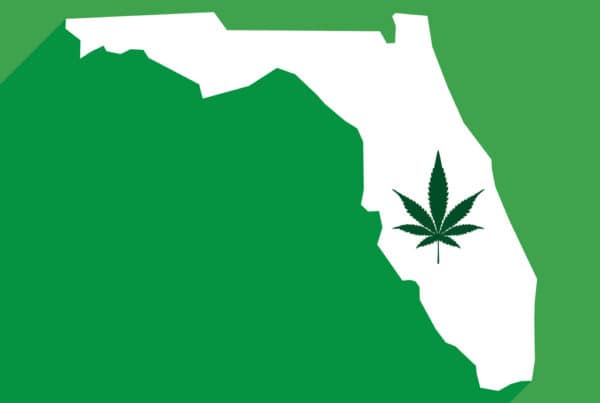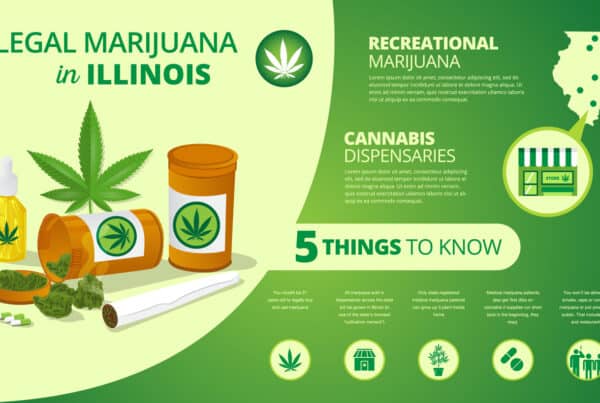TABLE OF CONTENTS
Canada has been very progressive when it comes to their cannabis laws. In 2018 Canada legalized cannabis for recreational use. Medical marijuana has been legal since 2001.
Canada Cannabis Laws – Recreational
On October 17, 2018, the Cannabis Act legalized cannabis in Canada for recreational use. The following are some of the Act's main clauses.
Age Restrictions
The majority of jurisdictions have a legal minimum age of 19 to purchase, possess, and consume cannabis; however, Alberta and Quebec have a minimum age of 18.
Limits on Cannabis Possession
People are only allowed to carry up to 30 grams, or about one ounce, of dried cannabis in public (or its equivalent in other forms).
Adults may grow up to four cannabis plants at home for their own use (per household, not per person). Yet, this might differ in other provinces or areas.
Sales and Distribution of Cannabis
The only approved outlets for the selling and distribution of recreational cannabis in Canada are licensed merchants and online stores.
Driving While intoxicated
Driving while intoxicated with cannabis is prohibited, and there are severe consequences.
Although the Cannabis Act establishes a framework for national cannabis legalization, each province and territory has its own laws and rules regulating how to use the drug.
Canada Cannabis Laws – Medical
In Canada, medical cannabis is legal and regulated under the Access to Cannabis for Medical Purposes Regulations (ACMPR). Here are some key provisions of the ACMPR:
- Medical authorization: To access medical cannabis in Canada, individuals must have a medical document signed by a healthcare practitioner who is authorized to prescribe cannabis. This document is similar to a prescription and includes information about the type of cannabis, the dosage, and the duration of treatment.
- Licensed producers: Medical cannabis can only be obtained from licensed producers who are authorized by Health Canada to grow and sell cannabis for medical purposes.
- Possession limits: Individuals authorized to use medical cannabis can possess up to a maximum of 30 times their daily dosage or up to a 30-day supply, whichever is less.
- Consumption: Medical cannabis can be consumed in various forms, including dried flower, oils, capsules, and topicals.
- Taxation: Medical cannabis is exempt from federal excise taxes, but it may be subject to other taxes at the provincial/territorial level.
- Workplace safety: Employers are required to accommodate employees who are authorized to use medical cannabis, but workplace safety remains a priority and individuals who work in safety-sensitive positions may be subject to additional restrictions.
It's important to note that the rules and regulations surrounding medical cannabis in Canada are subject to change, and individuals are encouraged to stay up-to-date on the latest developments.

Is it Legal to Travel to Canada with Cannabis?
Even though cannabis is legal in Canada it is unlawful to bring cannabis into Canada with you unless you have a prescription for medical cannabis authorized by Health Canada. If you enter Canada with cannabis you must declare it at customs.
Purchasing Retail Cannabis In Canada
The Canadian provinces will decide whether to allow any marijuana dispensaries to operate as a storefront. As in the United States, not all communities will embrace retail stores. In fact, some communities will prohibit them altogether.
If you are an adult that meets the age requirement you will be able to possess as much as thirty grams of marijuana or just a little more than an ounce – without getting in trouble with the Canadian law.
Cultivation Laws in Canada For Cannabis
You can grow marijuana on your own, but there are some restrictions. You can cultivate up to four plants per residence (not per person). Each marijuana plant must have a height of only three feet and three inches. The existing medical marijuana legislation will still stay intact for now.
Cannabis Laws in Each Canada Province
Canada’s provinces are responsible for deciding their own laws and policies, much like individual states in the US.
Quebec
The legal age for purchasing, possessing, and consuming cannabis in Quebec is 21 years old, which is the highest age limit in Canada.
There are over 85 marijuana dispensaries. No dispensary can operate within a kilometer of another.
Adults may posses up to 30 grams of dried flower or its equivalent, which is the maximum allowed per purchase. You can not consume cannabis in a public area.
Unlike some other provinces, Quebec prohibits the cultivation of cannabis plants for personal use at home
Driving under the influence will result in a 90-day driver’s license suspension.
Nova Scotia
The legal age for purchasing, possessing, and consuming cannabis in Nova Scotia is 19 years old.
Nova Scotia allows individuals to cultivate up to four cannabis plants per household for personal use. The plants must not be accessible to minors and must not be visible from a public place.
Cannabis can be purchased from licensed retail stores operated only by the Nova Scotia Liquor Corporation (NSLC) or through the online platform provided by NSLC.
It is illegal to consume cannabis in public spaces, including parks, streets, and workplaces. Landlords and property owners also have the right to restrict cannabis use on their properties.
Alberta
The legal age for purchasing, possessing, and consuming cannabis in Alberta is 18 years old.
Adults aged 18 and older can possess up to 30 grams of dried cannabis or its equivalent in non-dried form in public.
Like Nova Scotia, in Alberta, individuals are allowed to cultivate up to four cannabis plants per household for personal use. These plants must not be accessible to minors and must not be visible from a public place.
Cannabis can be purchased from licensed private retail stores or through the Alberta Gaming, Liquor & Cannabis (AGLC) online store.
Alberta has over 750 retail cannabis stores.
Ontario
To legally consume, possess or purchase cannabis in Ontario, a person must be 19 years old. While medical patients may consume edibles in public, recreational use can only occur in private residences.
Ontario regulates the sale of cannabis through the Ontario Liquor Control Board (LBCO) but does not actually sell it.
Dispensaries and online retail sales are allowed. Dispensaries may not open near schools.
Adults can grow a maximum of 4 plants per residence, not per person.
Manitoba
Adults 19 and older can posses, purchase and consume cannabis in Manitoba.
Adults aged 19 and older can possess up to 30 grams of dried cannabis or its equivalent in non-dried form in public.
Manitoba initially banned home cultivation of cannabis plants for personal use, regardless of the federal law allowing it. However, this ban was challenged in court and found to be unconstitutional. As a result, residents of Manitoba are now allowed to grow up to four cannabis plants per household for personal use.
In Manitoba, cannabis can be purchased from licensed private retail stores or through the Manitoba Liquor & Lotteries online store.
British Columbia
Adults 19 and older can possess, purchase and consumer cannabis in British Columbia.
Like other provinces the legal amount someone can carry on them in public is 30 grams or the equivalent. Furthermore, adults are restricted from possessing more than 1,000 grams of dried non-medical cannabis, or its equivalent, in a private setting, such as within their residence.
Adults in British Columbia are allowed to cultivate up to 4 cannabis plants per household for personal use. These plants must not be visible from public spaces and should not be accessible to minors.
In British Columbia, cannabis can be purchased from privately owned licensed retail stores or through the government-operated online store, the BC Cannabis Store.
Labrador and Newfoundland
The combined province of Newfoundland and Labrador is the newest of Canada’s 10 provinces, and its cannabis laws will largely resemble those for alcohol.
Adults 19 and older can purchase, consume and possess cannabis. The limit adults can have on them in public or purchase is 30 grams or its equivalent.
Labrador and Newfoundland have privately own retail stores adults can purchase their cannabis from or they can buy it online through the Newfoundland and Labrador Liquor Corporation (NLC) Cannabis website.
Adults can grow up to 4 plants per residence.
New Brunswick
The legal age to buy, possess and consume cannabis in New Brunswick is 19.
People may carry as much as 30 grams but may store unlimited amounts at home.
New Brunswick initially prohibited home cultivation of cannabis plants for personal use. However, this ban was challenged in court and found to be unconstitutional. As a result, residents of New Brunswick are now allowed to grow up to 4 cannabis plants per household for personal use.
In New Brunswick, cannabis can be purchased from Cannabis NB, a subsidiary of the New Brunswick Liquor Corporation (NB Liquor). Cannabis NB operates retail stores throughout the province, and online sales are also available.
Prince Edward Island
The legal age for purchasing, possessing, and consuming cannabis in Prince Edward Island is 19 years old.
Adults aged 19 and older can possess up to 30 grams of dried cannabis or its equivalent in non-dried form in public.
Individuals in Prince Edward Island are allowed to cultivate up to 4 cannabis plants per household for personal use. These plants must not be accessible to minors and must not be visible from a public place.
Cannabis can be purchased from licensed retail stores operated by the Prince Edward Island Cannabis Management Corporation (PEICMC) or through the online platform provided by PEICMC.
Saskatchewan
The legal age for buying, possessing and consuming cannabis in Saskatchewan is 19.
Similar to many other provinces adults aged 19 and older can possess up to 30 grams of dried cannabis or its equivalent in non-dried form in public.
Adults can grow up top 4 cannabis plants per residence, not per person.
In Saskatchewan, cannabis can be purchased from privately owned licensed retail stores or through the online platform provided by the Saskatchewan Liquor and Gaming Authority (SLGA).
Expenses and Permits For Cannabis In Canada
Cannabis prices vary by province and product, although they are often competitive to counteract the black market.
To become a cannabis producer or retailer, a business must apply for a license and adhere to Health Canada's regulations, which include quality control, security measures, and tracking of the product from seed to sale to avoid diversion to the illicit market.
Territory and Provincial Laws
Province and territory legislation on cannabis differ, particularly with regard to the legal age, where it can be purchased and used, and cultivation practices. For instance:
Legal Age: In accordance with alcohol consumption rules, the majority of provinces have established the legal age for cannabis usage at 19, while in Alberta and Quebec, it is only 18.
Retail Models: Some provinces have private or hybrid retail models, while others have government-run outlets (such as Ontario's OCS and Quebec's SQDC).
“
There are over 300,000 jobs in the cannabis industry. CTU trained me for one of them!

Makes $24.50 @ THC +
Consumption: Different provinces have different laws governing where it is permissible to use cannabis; some allow it wherever that smoking tobacco is allowed, while others have stricter guidelines.
Mail Ordering Pot
Cannabis can be mailed inside the nation via Canada Post's procedures, but it must be sent and received by those who are of legal age.
Selling Cannabis
It is against the law to sell cannabis in Canada without a Health Canada authorization.
Licensed producers are able to sell cannabis straight to patients with a prescription as well as to approved retailers and distributors.
Retailers need to get the necessary licenses to operate, and each province has a regulatory organization that keeps an eye on these sales.
Is it Legal to be High in Public in Canada?
Medical marijuana may be smoked or vaped in public places where tobacco smoking is permitted, but recreational cannabis use is only permitted within private homes or in yards connected to those homes; it is never authorized in a car.
What is the Legal Limit of Cannabis in Canada?
According to the law, an adult may have up to 30 grams of dried cannabis, or its equivalent, in their possession for recreational use in public.
What is the Legal Limit for Edibles in Canada?
The maximum amount of THC allowed in an edible product is 10 mg. The maximum THC content of cannabis extract intended for consumption is 10 mg per unit (such as a capsule or administered dosage) and 1000 mg per package.
Canada Cannabis Laws Conclusion
Many people realize that times are changing and the adaptation of both medical cannabis and recreational cannabis are inevitable for the future as it has begun to be embraced in so many countries, Canada included.
If you want to learn more about cannabis visit Cannabis Training University, the only IACET accredited cannabis college.

Fred Hernandez
Fred Hernandez is a highly accomplished and versatile writer, boasting an extensive background in the cannabis industry. With an in-depth understanding of various sectors including cultivators, processors, retailers, and brands, Fred's expertise spans across the entire cannabis landscape. As a prominent contributor to CTU, he consistently delivers insightful articles exploring the latest developments, news, and regulations shaping the cannabis industry. Whether it's delving into the intricacies of cannabis products, cannabis strain reviews, or providing comprehensive analyses of cannabis laws, or sharing expert insights on cannabis cultivation techniques, Fred's wealth of knowledge positions him as an invaluable writer and educator for all cannabis-related subjects.












 Jeff was involved in an accident where he endured a traumatic brain injury. He had a week-long stay in ICU where brain surgeons
Jeff was involved in an accident where he endured a traumatic brain injury. He had a week-long stay in ICU where brain surgeons  100% risk free money back guarantee within 48 hours after purchase if student has not completed any of the courses or exams.
100% risk free money back guarantee within 48 hours after purchase if student has not completed any of the courses or exams.